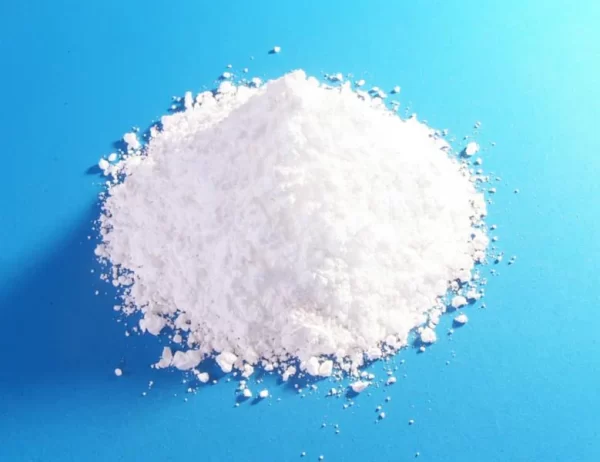
Calcium carbonate plays an important role in the environmental protection industry
Calcium carbonate plays an important role in the environmental protection industry and has become a green choice and pollution control assistant. Its natural, non-toxic characteristics and wide application make it the preferred material in the environmental protection industry. It is mainly reflected in the following aspects:
1. Application in water treatment;
(1) Adjusting water hardness
Calcium carbonate is one of the common water hardness components. The hardness substances in water are mainly composed of calcium ions and magnesium ions. When the content of calcium ions and magnesium ions in water is high, the water quality will become hard.
(2) Adjusting pH value
The pH value of water refers to the concentration of hydrogen ions in water, which directly affects the properties and functions of water. Calcium carbonate can neutralize acidic substances and reduce the corrosive effect of acidity on water.
(3) Removal of metal ions such as fluorine, chromium, and iron
Excessive fluorine content in drinking water will have an impact on human health, while water containing chromium and iron will cause the water to turn yellow and have an unpleasant odor.
(4) Relieve scale and prevent pipe blockage
Water contains a large amount of calcium and magnesium ions, which will aggregate in the water to form insoluble compounds, thus forming scale.
(5) Improve water utilization efficiency
By adding calcium carbonate, the efficiency of agricultural irrigation water utilization can be improved.
2. Application in wastewater treatment;
(1) Adsorption of organic matter
Calcium carbonate can adsorb a large amount of organic matter in wastewater, such as phenol, styrene, etc. It has good adsorption performance and can reduce the impact of organic matter on other pollutants in wastewater, thereby achieving the purpose of purifying the water environment.
(2) Adsorption of heavy metal ions
The heavy metal ions contained in wastewater have adverse effects on the water environment and human health, and calcium carbonate can adsorb heavy metal ions such as cadmium ions and aluminum ions in wastewater, which helps to reduce the content of heavy metal ions.
(3) Precipitation of organic matter in wastewater
Calcium carbonate can combine with organic matter in wastewater to form cluster precipitation, so that organic matter in wastewater can be removed. At the same time, by controlling the conditions and speed of precipitation, the concentration of organic matter can be effectively controlled.
(4) Precipitation of heavy metal ions
Calcium carbonate can combine with heavy metal ions in wastewater to form precipitation, thereby achieving the purpose of removing heavy metal ions. This method is one of the most widely used wastewater treatment methods at present. Its advantages are simple process and low cost.
3. Flue gas desulfurization;
In industrial fields such as thermal power plants and steel mills, flue gas contains a large amount of sulfur dioxide, which is the main cause of acid rain. Calcium carbonate, as a desulfurizer, can react with sulfur dioxide to generate calcium sulfate, thereby achieving flue gas desulfurization and reducing sulfur dioxide emissions.
4. Soil remediation;
Calcium carbonate can neutralize acidic substances in the soil, increase the pH value of the soil, improve the acidic environment of the soil, and promote plant growth.
Calcium carbonate can also react with heavy metal ions in the soil to generate insoluble carbonate precipitation, reduce the mobility and bioavailability of heavy metals in the soil, and reduce the pollution of heavy metals to the soil and groundwater.
5. Solid waste treatment;
Calcium carbonate can be used as a covering material for landfills to reduce the generation of leachate and reduce pollution to the environment.
In the resource utilization process of some solid wastes, calcium carbonate can be used as an additive or stabilizer to improve the physical and chemical properties of the waste and increase its utilization value.
6. Energy saving and emission reduction;
The wide application of calcium carbonate helps to reduce the use of chemical agents, reduce the energy consumption and cost of processes such as wastewater treatment and flue gas desulfurization.
By using calcium carbonate for soil remediation and waste treatment, the exploitation and consumption of natural resources can be reduced, and the environmental load can be reduced.
7. Reduce CO2 emissions;
Calcium carbonate is a mineral rich in carbon elements, which can be made into a variety of products through processing and extraction.
8. Used in building materials;
Calcium carbonate can be used to make fillers and building materials, such as wall panels, floor tiles, ceilings, etc. 9. Replace diatomaceous earth.
Calcium carbonate has a good ability to absorb air humidity and odor, and can be used to make air purifiers and furniture filling materials with better environmental performance. As a substitute for diatomite, calcium carbonate is not only environmentally friendly, but also relatively cheap, and has great market prospects.
